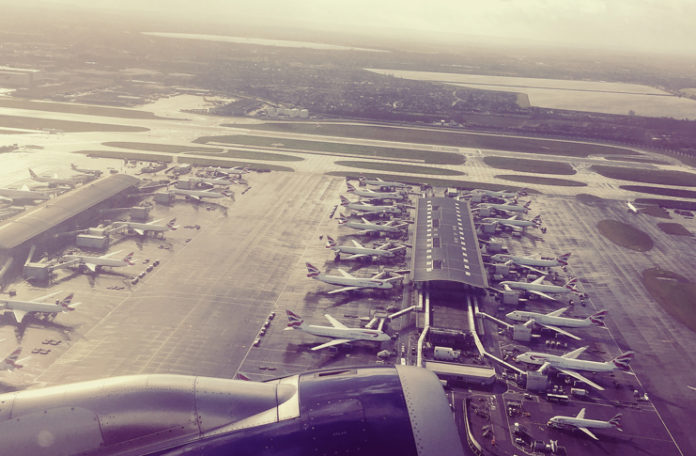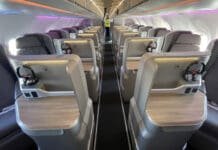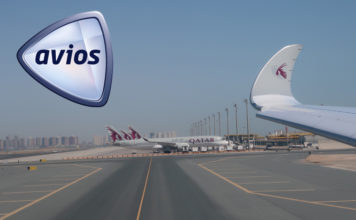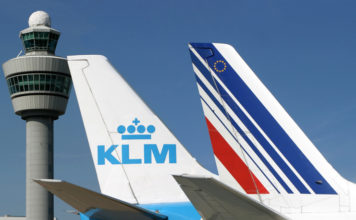
TravelingForMiles.com may receive commission from card issuers. Some or all of the card offers that appear on TravelingForMiles.com are from advertisers and may impact how and where card products appear on the site. TravelingForMiles.com does not include all card companies or all available card offers.
Some links to products and travel providers on this website will earn Traveling For Miles a commission that helps contribute to the running of the site. Traveling For Miles has partnered with CardRatings for our coverage of credit card products. Traveling For Miles and CardRatings may receive a commission from card issuers. Opinions, reviews, analyses & recommendations are the author’s alone and have not been reviewed, endorsed, or approved by any of these entities. For more details please see the disclosures found at the bottom of every page.
As far as news from the UK government is concerned, I’ve been mainly concentrating on what it has been saying with regards to pre-departure testing requirements and its travel policies relating to countries in which new variants of the coronavirus have appeared. This may be why I didn’t notice that last Friday, it extended the waiver it has in place for the rules governing slots at the nation’s airports.
The Slot Rule & The Issue
Under the rules set out by the UK’s Department of Transport, airlines are expected to operate their slots 80% of the time (it’s the 80:20 rule) or they risk losing their rights to them (“use it or lose it”). The rule is in place because a number of the UK’s airports are overcrowded and are “slot restricted” so the government wants to make sure that the airlines fortunate enough to have the slots are actually using them.
Last March, when it became obvious that a pandemic had broken out and that most airlines would have to make dramatic cuts to their route networks, the UK government suspended its slot rules and airlines were free to use the slots allocated to them as frequently or infrequently as it suited them. There was no risk that they would have their slots taken away.
The slot waiver was put in place for the whole of the summer season (through the end of October 2020) and then reintroduced for the 2020/21 winter season which runs through to the end of March but, with some airlines having seen an uptick in demand in recent months and with a number of airlines desperate to get their hands on the valuable slots at Heathrow and Gatwick, pressure was being put on the UK government not to renew the waiver for the 2021 summer season.
Put simply, a number of airlines (mainly low-cost carriers like Wizz Air, easyJet and Ryanair) are fully aware that a lot of the big legacy carriers can’t justify operating 80% of their slots right now (they’d have to fly empty aircraft to do so), so they were hoping that if the waiver wasn’t renewed, they’d be able to pick up the slots that the legacy carriers would be forced to give up.
However, following the recent announcement from the UK’s Department of Transport confirming that the slot waiver will remain in place through October 2021, any hopes that we would soon see slots being reallocated have been dashed.
Bad For JetBlue
JetBlue plans to launch its first transatlantic services later this year with routes to London from New York and Boston. The airline was hoping to be able to secure slots at London Heathrow but, back in November, it was announced that it would receive 14 weekly slots at London Gatwick (half the number of slots it requested) and 28 weekly slots at London Stanstead (all the slots it requested).
In the past few months (and with the slot waiver issue being hotly debated), JetBlue had been getting increasingly more hopeful that it may be able to secure some prized slots at Heathrow if some of the incumbents were forced to give them up.
Heathrow is the key airport for business travelers and the New York – Heathrow route is said to be the most lucrative route in the world so, understandably, JetBlue has been very keen for the UK to end the slot waiver and to see the “use it or lose it” policy reintroduced.
Now, this is not to be. For the time being, JetBlue will be forced to operate between New York and Gatwick and Boston and Stanstead and regardless of what some have been saying, this isn’t going to be ok.
I’ve read a number of journalists opining that because JetBlue is a predominantly leisure traveler’s airline it will do just fine out of Stanstead and that it will make business travel out of Gatwick work too…but I don’t think so.
Stanstead is nowhere near London, no long-haul carrier has really made money out of business travelers flying from Gatwick and, more importantly, JetBlue isn’t introducing a wonderful new Mint product just to keep leisure travelers happy or to tempt business travelers to Gatwick. The airline wants access to the stream of premium traffic that moves between London and the East Coast and it knows that it needs to get into Heathrow to do that.
You only have to take a look a the complaint that JetBlue made to the US DoT on 19 January (as it became increasingly obvious that the slot waiver wasn’t going away) to see just how much importance the airline places on getting better slots than it has right now. Up until Friday, there may have been a little hope left. Now, not so much.
Bottom Line
The UK’s Department of Transport has confirmed that the airport slot waiver that has been in place since March 2020 and that a number of airlines were hoping to see removed, has been renewed through the 2021 summer season. For the likes of easyJet, Wizz Air, and Ryanair this will probably just be a big annoyance. For JetBlue, however, it may be a little more serious.

















The whole slot system is a disaster that keeps monopolies in place. In every slot constrained airport there needs to be some type of auction for landing slot leases every X number of years, accompanied by some guarantee for gates. The Heathrow situation illustrates that there’s somewhere between little and no incentive for BA to continue its’ downward spiral since no viable competition is threatening their stranglehold on the airport.